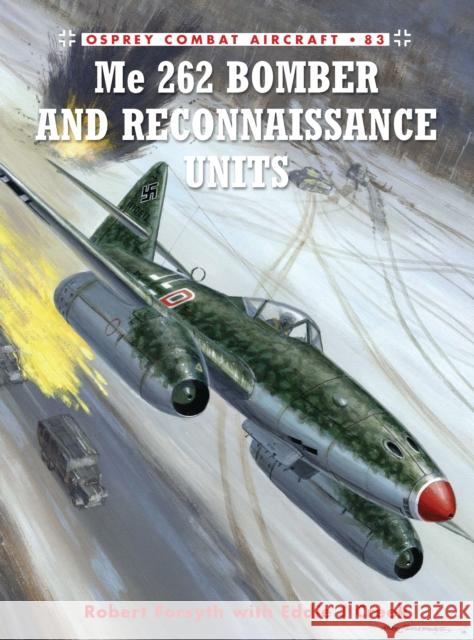Me 262 Bomber and Reconnaissance Units » książka
Me 262 Bomber and Reconnaissance Units
ISBN-13: 9781849087490 / Angielski / Miękka / 2012 / 96 str.
When the revolutionary Messerschmitt Me 262 jet first appeared as a bomber in the skies over north-west Europe in late 1944, it represented both a new dawn in aeronautical development and a great shock to the Allied air forces and armies. The Me 262's path to deployment as a bomber aircraft was tortuous and is surrounded in controversy. In mid-1944, Adolf Hitler, having seen the impressive and formidable performance of Me 262 prototypes, stated his firm desire to see the aircraft enter service, not as an interceptor, but as a bomber. In this aircraft he believed he had the weapon which would be able to attack the Allied armies with impunity if, as predicted, they landed on the coast of France. There was nothing which the Allies had in their air forces which could touch the Me 262. Although, due mainly to problems associated with delays in engine deliveries, its debut was too late to contest the Allied landings in Normandy, when it finally did enter initial service with Kommando Schenck, under the command of Knight's Cross holder Oberstleutnant Wolfgang Schenck, in the autumn of 1944, the bomb-carrying Me 262s conducted several hit-and-run raids against RAF airfields in Belgium and Holland. From then until the end of the war the Me 262 remained one of the most feared weapons in the Axis arsenal, and it was only the overwhelming Allied air superiority and the continuous dwindling of Axis supplies that finally grounded the planes. This book covers the complete history of the Me 262 bomber and reconnaissance units during World War II.











